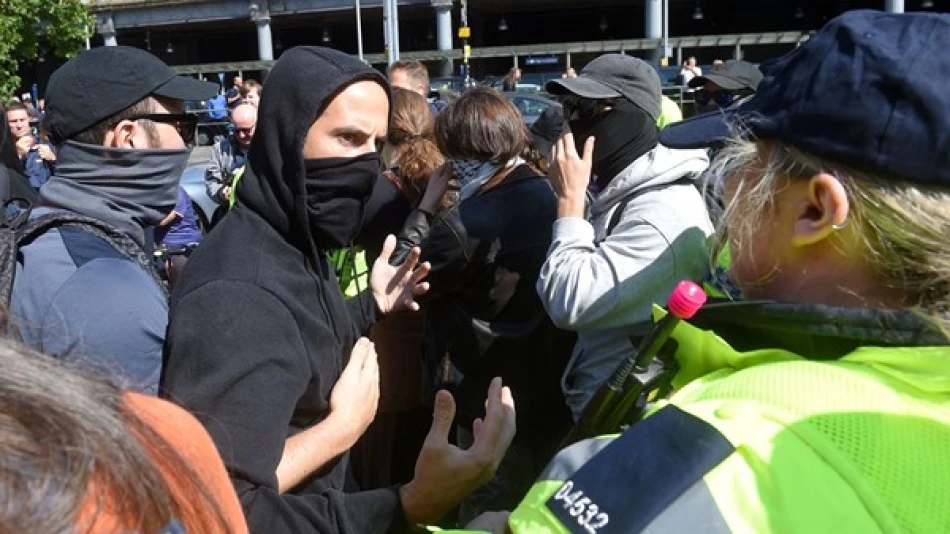
Clashes Erupt During Immigration Protests in the UK: Unrest Highlights Tensions Over Migration Policies
Anti-Immigration Protests Reignite UK Street Tensions as Far-Right Groups Mobilize
Fresh clashes erupted across British cities on Saturday as anti-immigration demonstrators demanding "mass reverse migration" faced off against anti-racism counter-protesters, highlighting the deepening polarization over asylum policy that has plagued the UK for months. Police arrested nine people as tensions boiled over in Manchester and London, signaling that Britain's immigration debate is far from cooling down.
Manchester Becomes Flashpoint for Immigration Debate
The far-right "Britain First" party organized a march in central Manchester, where supporters gathered to demand what they termed "reverse migration" policies. The demonstration quickly drew counter-protesters, leading to brief but intense confrontations before police intervention separated the groups.
"This is a march for reverse migration," said 66-year-old protester Brendan O'Reilly. "Send them back where they came from, don't let them in, just stop them from arriving."
Counter-protester Judy, 60, articulated the opposing view: "I refuse to see people filled with hatred on Manchester's streets. Do they want everyone to leave, or just people with dark skin? I think they only want dark-skinned people to go back."
London Hotels Continue as Protest Targets
Similar scenes unfolded in London outside a Barbican area hotel housing asylum seekers—a recurring pattern that has become a focal point for immigration tensions. The Metropolitan Police cleared intersections where opposing groups had gathered, arresting nine people, seven on charges of disturbing public order.
These hotel protests represent a tactical shift by anti-immigration groups, who have identified asylum accommodation as symbolic targets that generate both media attention and local grievances.
Pattern of Escalating Violence
Saturday's incidents follow weeks of similar confrontations, with the Epping area of London emerging as a particular hotspot for violence. This escalation reflects broader European trends where immigration has become a street-level political battleground, similar to demonstrations seen in Germany, France, and the Netherlands.
Political Implications for UK Immigration Policy
These protests occur against the backdrop of record asylum applications and mounting pressure on the UK's immigration system. The targeting of specific hotels housing asylum seekers suggests organized coordination rather than spontaneous demonstrations, indicating that far-right groups are adopting more sophisticated mobilization strategies.
The government faces a delicate balancing act: maintaining public order while addressing legitimate concerns about immigration processing delays and community integration. The visible police presence required to separate opposing groups demonstrates the significant resources now needed to manage immigration-related tensions.
Unlike previous immigration debates confined largely to political chambers, these street-level confrontations signal that the issue has moved into a more volatile phase, with both sides increasingly willing to mobilize supporters for public demonstrations. This development mirrors patterns seen during other periods of high immigration tension in European democracies, where street protests often precede significant policy shifts.
Most Viewed News

 Layla Al Mansoori
Layla Al Mansoori






